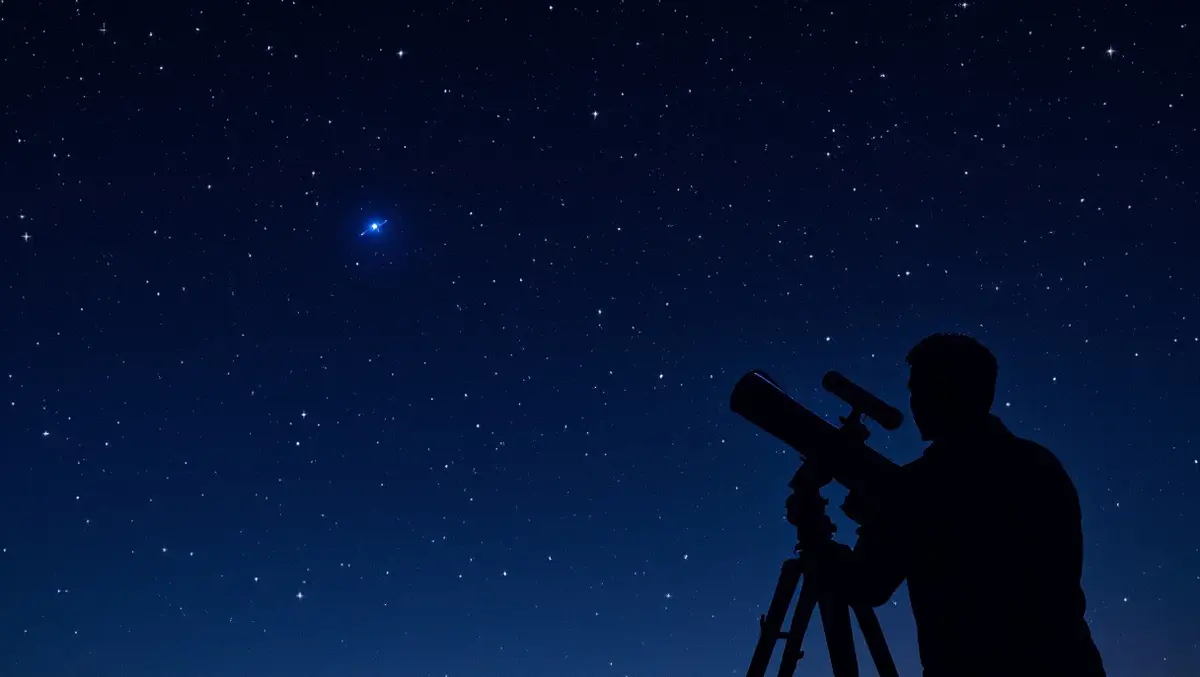
Unistellar & SETI launch satellite citizen science programme
Unistellar has partnered with the SETI Institute to introduce the Satellites Program, a citizen science initiative that enables users to track satellite positions and measure their brightness.
The programme aims to contribute real-time observations to help researchers refine orbital models and explore methods to reduce stray reflections. This initiative seeks to ensure a responsibly managed outer space environment that is shared for future generations.
Since the Soviet Union's launch of Sputnik 1 in 1957, satellites have become a pivotal part of Earth's orbit.
Their functions now encompass communication, Earth observation, weather forecasting, scientific research, and space exploration.
The number of active satellites in low-Earth orbit has increased sharply from 1,200 to 9,900 over the past ten years, catering to needs like global connectivity and Earth observation.
A projected increase to 60,000 satellites by decade's end demands careful management of near-Earth space due to its shared nature and vulnerability. The surge of satellites could create significant challenges for astronomy, which relies on technologies to detect faint, moving targets such as Potentially Hazardous Asteroids. These detections might be disrupted by interference from satellites.
Another issue involves the risk of satellite collisions and debris: constant monitoring is required to prevent these incidents as satellite orbits can drift naturally over time. Without vigilant tracking, a cascading effect known as the Kessler Syndrome could occur, potentially making space inaccessible.
Starting 12 February, Unistellar users can join this initiative to provide meaningful support for sustainable near-Earth space management.
Unistellar's users, by becoming Satellite Trackers, contribute to a better understanding of satellites' impact on the night sky, which benefits both professional astronomers and hobbyists. Observers can gather data on satellite positions and brightness, providing insights which aid SETI Institute scientists in revising orbital models and strategising on reducing stray reflections.
The observations from these hobbyists offer valuable insights as satellite companies work to minimise glare through new design features and maneuvers. Observed data from Unistellar users helps these companies identify effective strategies to mitigate stray reflections.
According to Laurent Marfisi, Co-founder and Co-CEO of Unistellar, "The Satellites Program enriches our already extensive citizen science program with its 6th vertical, now enabling users to protect the night sky and, soon, preserve our access to space. Partnering with the SETI Institute, they're not just observing—they're shaping the future of space exploration and sustainability, playing a vital role in safeguarding our cosmic environment."
Citizen Science is an initiative that allows amateur and professional scientists to collaborate towards a shared goal. Professional scientists rely on citizen scientists to gather and analyse vast amounts of spatial data, which allows for an expanded understanding of the universe.
Unistellar has created the Unistellar Network with 25,000 members globally in partnership with SETI Institute astronomers. Using their telescopes, these citizen scientists compile data that supports SETI Institute researchers' models and predictions. In 2023, a publication in Nature detailed how the global network of citizen scientists contributed to capturing optical observations of Dimorphos, the satellite of asteroid 65803 Didymos, before, during, and after impact.


